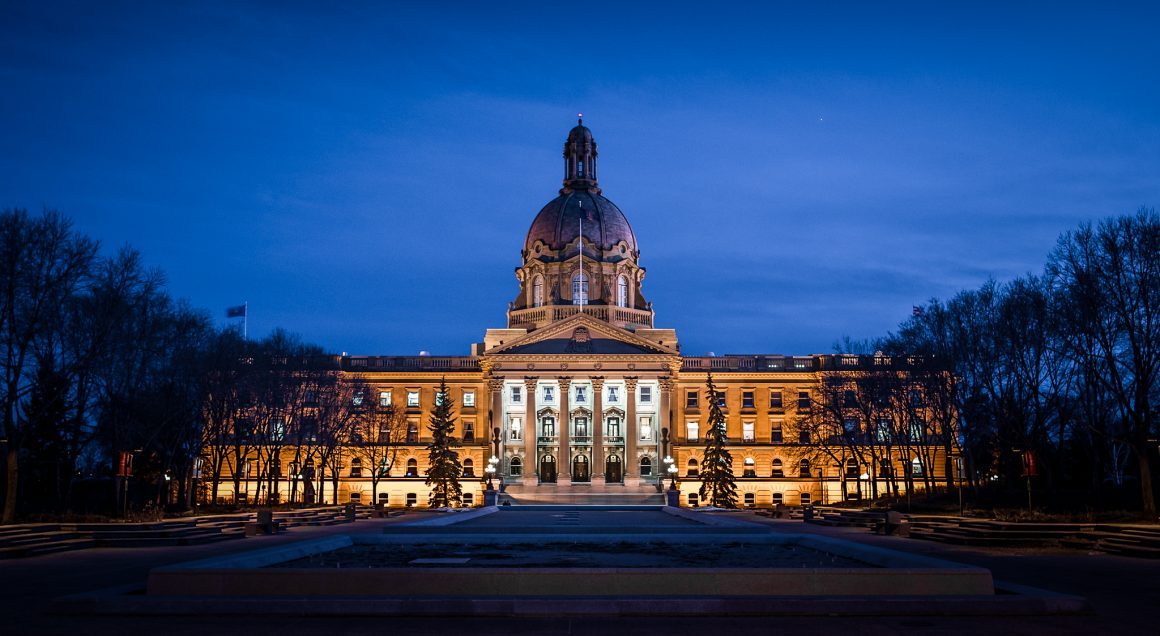
Provincial budget highlights two per cent increase to post-secondary funding
By Tina Shaygan and Scott Strasser, March 17 2017 —
The Alberta New Democratic Party government will allocate $6 billion to post-secondary education this year, according to the NDP’s 2017–18 budget.
On March 16, the provincial government tabled its budget for the fiscal year ending in April 2018. Alberta finance minister Joe Ceci presented the budget to the legislature and cited “protecting the services Albertans care about” as the government’s main priority.
With $6 billion allocated to Alberta’s post-secondary sector, universities and colleges will see a two per cent increase in base government funding for the third consecutive year. Last year, the province allocated $5.9 billion to post-secondary.
The University of Calgary will receive a further $262 million over three years starting in 2018–19 for the MacKimmie Complex and Professional Faculties redevelopment project. The university will also receive $52 million for the continued expansion of the Schulich School of Engineering in 2017–18, as well as a two per cent increase to its Campus Alberta grant.
U of C president Elizabeth Cannon said she was pleased with the budget.
“Considering the environment we’re in, we would label this a very good budget,” she said. “We saw the commitment to stable and predictable funding by a two per cent increase in our operating budget and we saw an increase to the Infrastructure Maintenance Program, which we use in the sector for deferred maintenance.”
The U of C is currently addressing $490 million in deferred maintenance on campus. Deferred maintenance refers to postponements of infrastructure repairs and facility upkeep.
Cannon said one of the things she would like to have seen in the budget is more certainty on the future of tuition fee regulation in Alberta, which is currently under consultation.
“We’re in a situation where we don’t have certainty for the government’s long-term policy around tuition,” she said “We’re hopeful that by early fall there will be some clarity because I think all stakeholders need to know what that will look like for the long-term, so we can all plan accordingly.”
The current tuition freeze will remain in place for the 2017–18 academic year. The ministry of advanced education claims the tuition freeze will save students a total of $16 million.
However, the budget does not include plans to compensate the province’s post secondary institutions’ revenue losses with backfill funding after the tuition freeze. In 2016, the NDP supplied universities and colleges with $16 million in backfill funding.
“It’s no secret that we had to make some tough decisions with this budget, and in this economic climate, this budget shows a commitment to making students’ lives better,” minister of advanced education Marlin Schmidt told reporters in Edmonton following the budget announcement.
Cannon said the U of C will lose about $4 million in revenue due to the lack of backfill funding, depending on next year’s enrolment figures. But she said the two per cent increase in the university’s base funding from the government will account for that loss.
The NDP budget also includes devoting $252 million to student aid, including $96 million towards scholarships and awards. Student aid funding will include $56 million for grants, including $4.2 million for Alberta Low Income Grant payments.
Students’ Union vice-president external Tristan Bray said a highlight of the budget is an additional $3.6 million in mental health funding that will be allotted to post-secondary institutions. According to Bray, the mental health funding will most likely be allocated the same way as last year, with $900,000 going to the U of C.
“We’re pretty content with the budget. Happy would be too strong but we’re not upset about it,” Bray said.
According to Cannon, the U of C will receive its budget letter from the ministry of advanced education in the coming weeks, highlighting more details of provincial government funding for next year.
